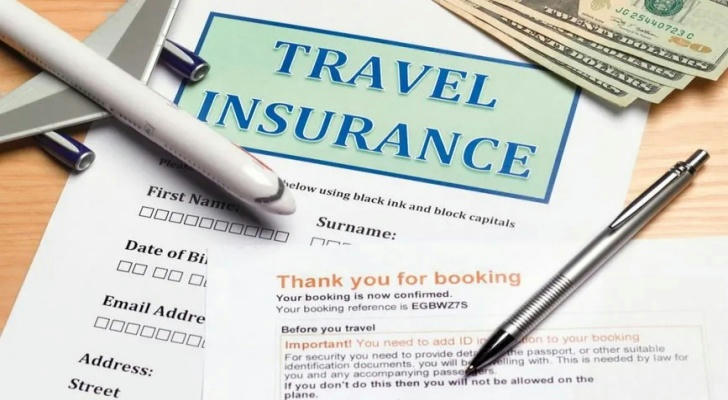When Is Travel Insurance Worth the Expense? A Practical Guide for US Travelers
Traveling offers adventure, relaxation, and new experiences. However, unexpected events—from flight cancellations to medical emergencies—can turn a dream vacation into a financial nightmare. For US travelers, deciding whether to purchase travel insurance involves weighing potential risks against the added cost. This guide explores key scenarios where travel insurance proves its value, helping you make an informed decision.

Understanding Travel Insurance: Core Coverage Types
Travel insurance isn't a single product; it’s a suite of coverages designed to address specific travel risks:
Trip Cancellation/Interruption: Reimburses prepaid, non-refundable expenses (flights, tours, hotels) if you must cancel or cut short your trip for covered reasons. These typically include:
Serious illness/injury (you, a family member, or a travel companion).
Death of a family member or traveling companion.
Severe weather or natural disasters impacting your destination or departure point.
Job loss (under specific conditions outlined in the policy).
Being called for jury duty or subpoenaed.
Emergency Medical & Dental: Covers costs for unexpected illnesses or injuries occurring during your trip. This is critically important for international travel, as most US domestic health plans (including Medicare and many private plans) offer limited or zero coverage outside the country. Evacuation can cost tens of thousands of dollars.
Emergency Medical Evacuation/Repatriation: Pays for medically necessary transportation to the nearest adequate facility or even back to the US. Costs for international air ambulances can easily exceed $100,000.
Baggage Loss/Delay: Reimburses you for essential items if your bags are delayed (usually by 12+ hours) or provides compensation if they are lost, stolen, or damaged by the carrier.
Travel Delay: Covers additional expenses (meals, accommodation) incurred due to significant delays (often 6-12+ hours) caused by covered reasons like mechanical breakdowns or severe weather.
Key Factors Making Travel Insurance Worthwhile
The value proposition hinges on several factors specific to your trip and personal circumstances:
High Total Trip Cost: The more you've invested upfront in non-refundable bookings (luxury cruises, international tours, complex multi-stop itineraries), the greater your financial risk. Insuring a significant investment protects against losing thousands of dollars due to unforeseen cancellation.
International Destinations: This is arguably the strongest case for insurance.
Healthcare Costs: Medical treatment abroad can be exorbitant, and navigating foreign healthcare systems is challenging. Medical coverage is essential.
Evacuation Needs: Getting critically ill in a remote location or a country with limited medical facilities necessitates expensive evacuation.
Complex Logistics: Issues like missed connections due to delays can cascade, making interruption coverage valuable.
Pre-Existing Medical Conditions: Travel insurance can cover flare-ups of pre-existing conditions, but strict rules apply:
You typically need to purchase insurance within 10-21 days of your first trip deposit.
The condition must be "stable" for a defined period (e.g., 60-180 days) prior to purchase.
Look for policies that explicitly offer a "Pre-Existing Condition Waiver" meeting these criteria.
Traveling to Remote or Unstable Areas: Trips involving adventure sports, remote hiking, or destinations with political instability or limited medical infrastructure significantly increase risks. Robust medical and evacuation coverage becomes crucial.
Cruises, Tours, or Complex Itineraries: These often involve substantial non-refundable deposits paid months in advance and complex logistics vulnerable to disruption. Cancellation/interruption coverage protects this large investment.
Concerns About Work or Family Obligations: If your job is unstable or you have elderly parents/young children at home whose health could necessitate your return, "Cancel For Any Reason" (CFAR) coverage might be worth considering (though it adds significantly to the cost and typically reimburses only 50-75%).
Travel During High-Risk Seasons: Hurricane season (Caribbean, Southeast US), monsoon season (Southeast Asia), or winter travel to areas prone to severe snowstorms significantly increase the likelihood of cancellations or delays. Trip delay and cancellation coverage offer protection.

When Travel Insurance Might Be Less Critical (But Still Worth Considering)
Short, Domestic Trips with Flexible Bookings: If you're taking a weekend getaway within the US using refundable flights/hotels or points, and you have comprehensive domestic health insurance, the risk exposure is lower. However, consider baggage or delay coverage if checking luggage or traveling during peak times.
Very Low-Cost Trips: If the total non-refundable cost is minimal (e.g., a cheap, last-minute flight and hostel), the premium might approach or exceed potential losses, making insurance less cost-effective for cancellation.
How to Evaluate and Purchase Wisely
Assess Your Risk Profile: Honestly evaluate the factors above (trip cost, destination, health, stability).
Understand Your Existing Coverage:
Check your health insurance's international coverage limits and exclusions (assume it's likely minimal).
Verify credit card travel protections (often limited to delays/lost baggage on tickets paid with that card, rarely include medical or cancellation).
Compare Policies Carefully:
Coverage Limits: Are medical, evacuation, and cancellation limits adequate for your needs and destination costs?
Deductibles: How much would you pay out-of-pocket before coverage kicks in?
Exclusions: Read these meticulously! Understand what isn't covered (e.g., pandemics, certain high-risk activities, pre-existing conditions without a waiver).
Primary vs. Secondary Medical: Primary coverage pays first, simplifying claims. Secondary requires you to file with your regular insurer first.
Reputable Providers: Use comparison sites (like Squaremouth or InsureMyTrip) and research insurer ratings (AM Best, BBB).
Consider "Cancel For Any Reason" (CFAR) Carefully: It offers maximum flexibility but comes at a premium (often 40-50% more) and only partial reimbursement. Weigh the cost against your personal level of risk aversion.
Buy Early: Purchasing soon after your initial deposit locks in coverage for pre-existing conditions (if applicable) and ensures coverage if you need to cancel long before departure.
The Bottom Line: Peace of Mind Has a Price
Travel insurance isn't universally necessary, but it transforms from an optional expense into a valuable safeguard under specific circumstances. For US travelers, the combination of high international medical/evacuation costs, the prevalence of complex, prepaid trips, and gaps in domestic health coverage abroad makes it a prudent investment for many journeys.
When it's likely worth the expense: For expensive international trips, travelers with health concerns, complex itineraries, travel to remote/unstable areas, or during high-risk seasons. The relatively modest premium pales in comparison to potential losses from a medical emergency abroad or the forfeiture of thousands in non-refundable costs.
When to skip or choose minimal coverage: For very cheap, flexible domestic trips where the potential loss is low and your health coverage is solid.

Ultimately, the decision hinges on your financial risk tolerance, health, trip details, and existing coverage. Carefully analyze your situation, read policy details thoroughly, and view travel insurance as a tool to protect your investment and well-being, allowing you to explore the world with greater confidence.
